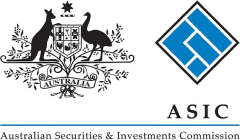Compared to the traditional way of buying currency in person, ordering foreign currency online is usually cheaper. Money changers that have a retail store have to pay for rent, staff and insurance. Online money changers like S Money don’t have these large costs, making it easier to provide better exchange rates and lower fees. Buying foreign currency online is also a lot easier. Unlike physical stores, all exchange rates are displayed clearly so you know what you are going to pay. In most cases, you can also get your currency delivered to your door, saving you the hassle of driving […]
In most cases, it is cheaper to buy your foreign currency at home in Australia before you head overseas but there are some important exceptions. It’s cheaper to convert Australian dollars into foreign currency if you are travelling to Singapore, Bali, Thailand or Hong Kong. Learn more: Where is it Cheaper to Buy Foreign Currency, Australia or Abroad?
Unlike booking flights, exchange rates for foreign exchange do not have a ‘best day to buy’. Within the travel industry it is known Tuesdays are the cheapest day to fly, but exchange rates don’t work that way. Movement in foreign exchange rates depends on the global demand and supply of goods and services, as well as political and economic factors. These bank forecasts will help give you a great understanding of which direction Australian dollar currency pairs will move in the future.
ANZ used to offer the best bank exchange rates but they recently shut down their currency exchange operations. None of the banks offer the best exchange rates. In our comparison tables they always come last with the worst exchange rates. This is because they pass on the cost of using a physical storefront to you. They also charge you a ‘lazy tax’. This is when you don’t know or can’t be bothered to look around for a better cost. The rates offered by banks for foreign currency are closer to the exchange rates listed by the RBA than the rate on […]
If you are looking to buy or sell foreign exchange in cash and want to head into a money changer near you, check out our local city guides to find the best exchange rate: Sydney – The best rates in Sydney are found on Pitt Street, George Street or occasionally in Haymarket. Melbourne – Money changers near Flinders Street Station have the best rates in Melbourne with the exception of United Currency in QV. Adelaide – Almost every foreign exchange store in Adelaide is located on King William Street. Perth – There aren’t too many money exchange places left in […]
It depends on your travel style. Budget travellers should plan for around $2,500–$3,500 CAD, mid-range travellers around $5,000–$7,000 CAD, and luxury holidays can easily reach $10,000–$14,000 CAD for two weeks. Canada can be pricey, especially in major cities or ski resorts, so it’s worth planning ahead and booking accommodation early to make the most of your money.

